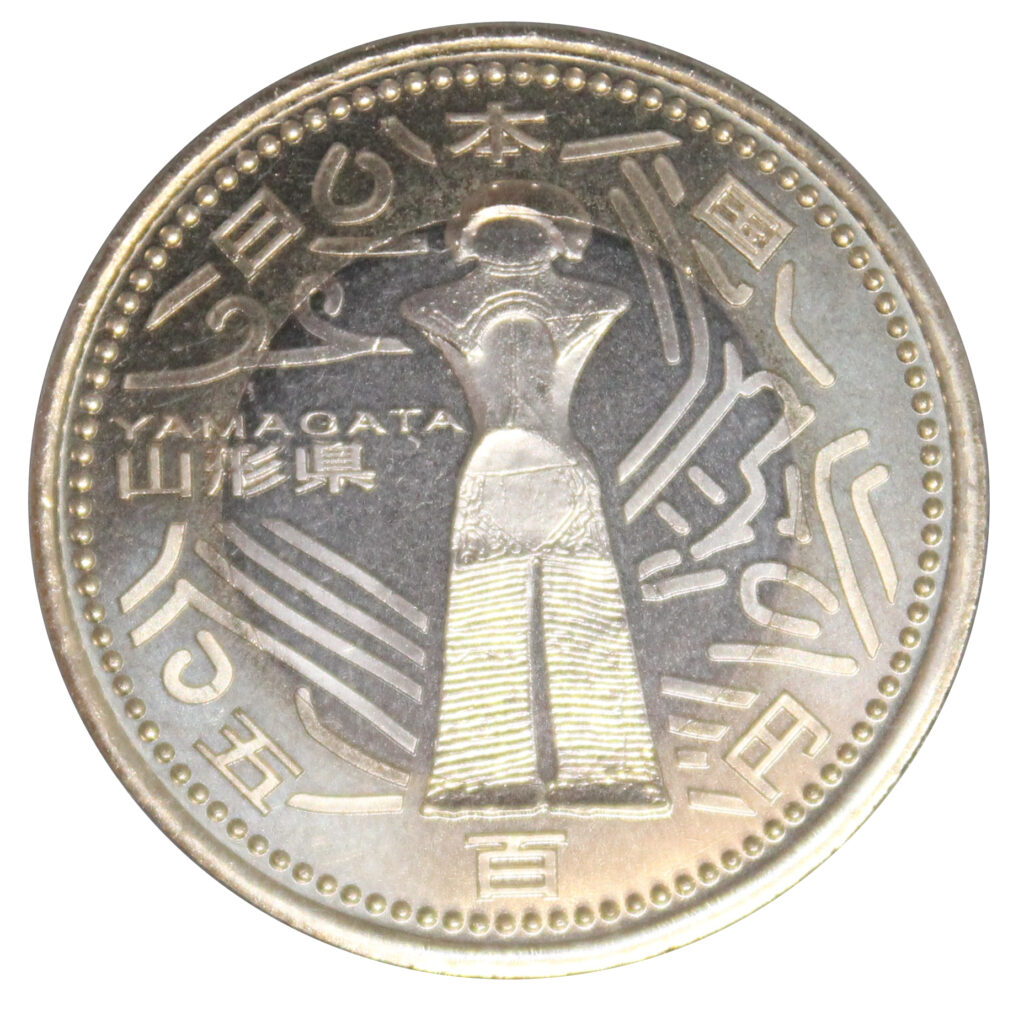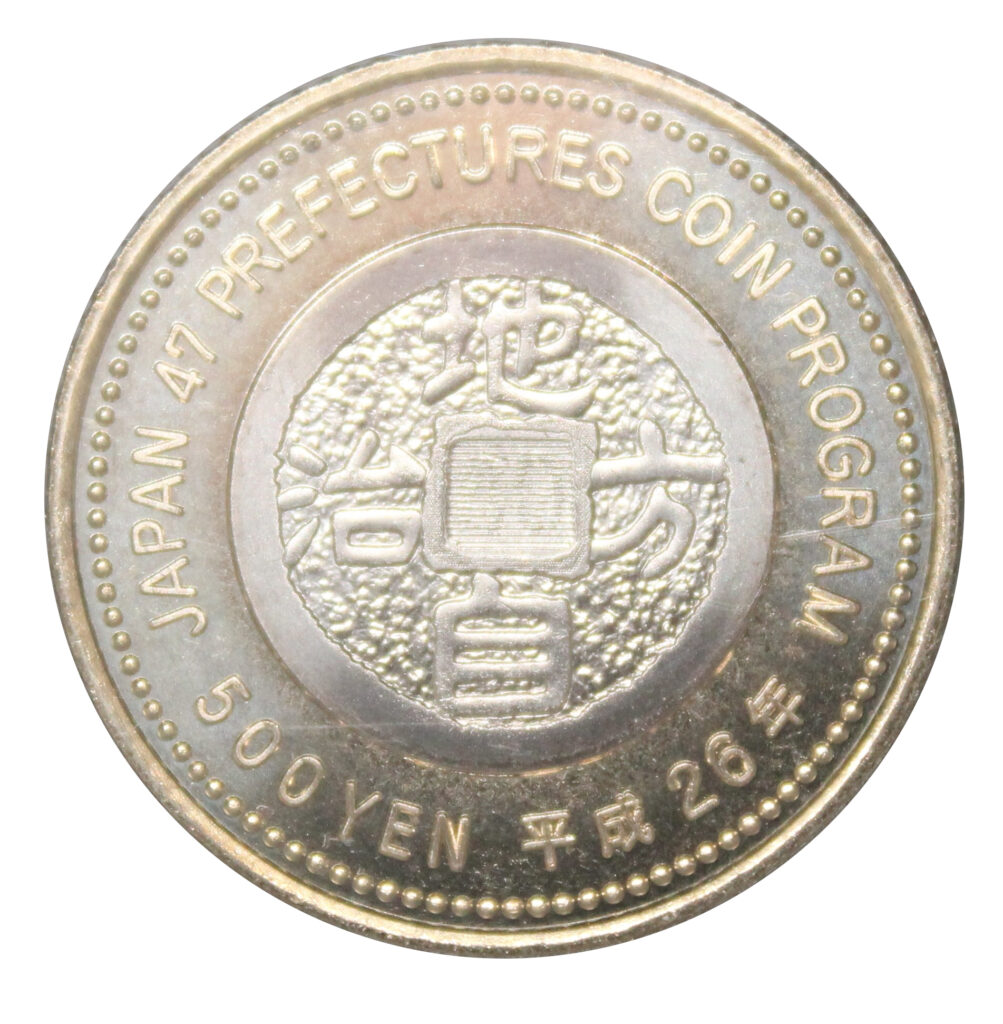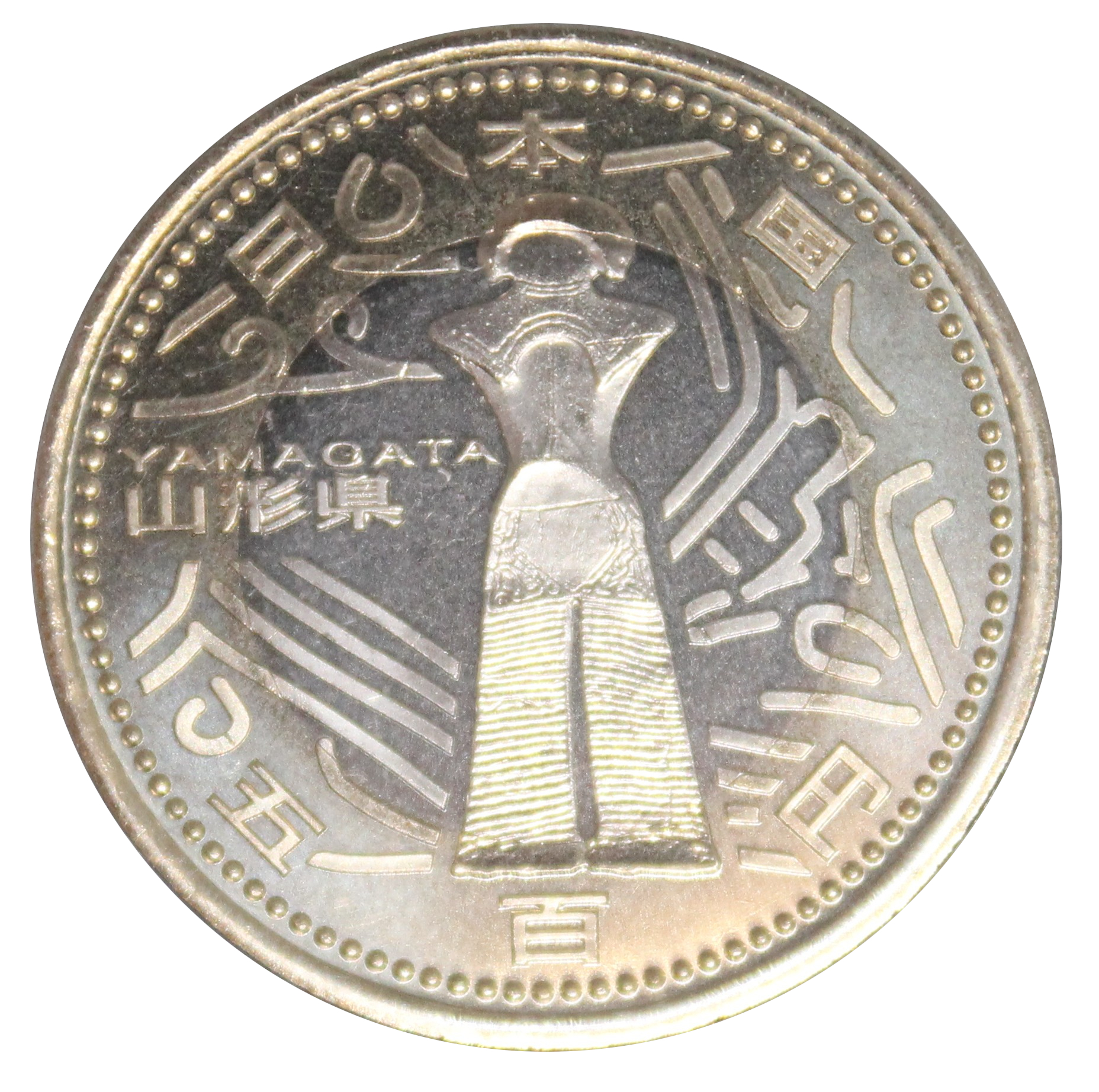

| Material | Nickel-brass, Cupronickel and Copper |
| Composition | Copper 750 Zinc 125 Nickel 125 |
| Weight | 7.1g |
| Diameter | 26.5mm |
| Year of Production | 2014 |
A 500 yen coin made to commemorate the 60th anniversary of the enforcement of the Local Autonomy Law.
There are 47 types, the same as the number of prefectures in Japan.
It is made by combining two technologies: “Cladd,” in which another type of metal plate is inserted between two metal plates, and “Bicolor,” in which another metal is placed in a disk. “Baikara Clad
There are jagged edges on the sides, and only four places are shaped differently from the rest.
The reverse side is the same.
The design imitates the coins of the Edo period.
It is written in kanji as “local Autonomy” in four characters.
The year and “JAPAN 47PREFECTURES COIN PROGRAM” are engraved.
The obverse has a different design for each prefecture.
The YAMAGATA type depicts the Jomon Goddess.
This is a clay figure (Dogu) from the Jomon period (approximately 10,000 BC to 400 BC) excavated from the Nishino-mae ruins, located near the famous hot spring area ‘Ginzan Onsen’ in Yamagata Prefecture. It is the largest Dogu in Japan, with a height of 45 cm. While it does not have facial features, it is shaped in the silhouette of a woman. Due to the beauty of its standing posture, it is called ‘Goddess’ and named ‘Jomon Goddess.’ It has been designated as a national treasure.
The patterns surrounding the goddess are motifs used in Jomon period clay figures and pottery.


